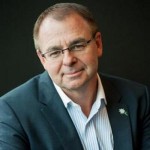Charities Fight Truth Decay

11 October 2018 at 7:45 am
It is not always high-profile public advocacy that is important, fighting truth decay is a critical role for all charities, writes Community Council for Australia CEO David Crosbie.
Everyday across Australia charities take a stand for truth. In thousands of ways, big and small, they work to undermine bigotry, ignorance, oppression and fear. This work has never been more important.
The RAND Corporation was established 70 years ago and is one of the world’s leading policy think tanks, employing over 1,800 staff. RAND has spent considerable time and effort researching and exploring the phenomena it has labelled “truth decay”.
According to the lead authors of RAND research in this area; Michael Rich (also the president and CEO of RAND) and Jennifer Kavanagh, there are four trends that characterise truth decay:
- increasing disagreement about facts and analytical interpretations of facts and data
- a blurring of the line between opinion and fact
- the increasing relative volume and resulting influence of opinion and personal experience over fact
- declining trust in formerly respected sources of facts.
While the RAND research is focused on the United States, there is good evidence that Australia satisfies all four of these characteristics for truth decay.
In the last few days, various political leaders and commentators have dismissed the evidence and conclusions of the highly qualified Intergovernmental Panel on Climate Change (IPCC). The IPCC recommendation that we need to do more globally to slow the impact of climate change has been ridiculed by some. This is not new or surprising anymore. In Australia, we have elected politicians in our national Parliament who argue that global warming has little to do with human activity. Strike one.
Some commentators in the Australian media make their reputations by blurring the distinction between opinion and facts as has recently been demonstrated by the Wagner family defamation case that has cost Alan Jones or his employers at 2GB $3.7 million. It is now commonplace in our public discourse for opinions from all sorts of people to be treated as fact and facts to be dismissed as though they are opinions. Strike two.
The rise of Facebook and Twitter as a source of information has been very significant in Australia. Curated peer opinion is now being relied upon as a key source of news by over 50 per cent of Australians. Strike three.
Trust in all Australian institutions has been declining for the last 10 years. Strike four.
RAND researchers have argued that these four trends are informed by growing political and social polarisation, increasing reliance on social media, and personal bias towards accepting information that resonates with our own views. They also argue education systems in the US lack the capacity to be ahead of information technologies or provide the necessary critical thinking skills.
For charities, truth decay not only undermines trust in our organisations, but also increases the level of distrust and suspicion between different parts of the communities we serve. This is compounded when charities become collateral damage in a fiercely partisan political debate where issues-based advocacy is reduced to a simple polarity – you are either “with us or against us”, or as one government adviser recently said in discussing whether to meet with someone or not – “is he one of ours or one of theirs”.
There is a lot of discussion in many forums about the loss of trust and the negative impact of truth decay on our democracies. We know that when basic facts cannot be agreed to, political debates become dysfunctional. History has shown us what can happen when false facts that confirm our cognitive biases (eg that we are a superior race) drive national policy.
There is much less discussion in any forum about what can be done to reduce or prevent truth decay.
Charities are highly trusted in Australia compared to most other institutions. This fundamental level of trust, informed by a commitment to charitable purpose, enables charities to play a significant role in addressing truth decay.
There are many examples of charities pushing back against misinformation, calling out the undermining of facts and the associated truth decay.
This week the CEO of the Australian Conservation Foundation, Kelly O’Shanassay, publicly criticised the government for seeking to hide facts about our climate. The release of a factual report on greenhouse gas emissions in Australia was delayed for many weeks, then published late Friday night after the banking royal commission released its report and just prior to football grand finals in Melbourne and Sydney.
As ABC News reported: “‘There is a clear trend here that the government is hiding climate data from Australians,’ ACF chief executive Kelly O’Shanassy said. A spokesperson for Environment Minister Melissa Price told the ABC, ‘Ministers routinely and appropriately consider briefs for a period of time’.”
The latest report – the Department of Environment’s quarterly update of Australia’s National Greenhouse Gas Inventory – showed, after adjustment for seasonal variation, in the three months of this year Australia had the highest levels of carbon pollution since 2011.
No-one anywhere believes the way the government released this report was anything other than a political strategy to ensure minimum coverage of a damming fact.
ACF is not alone in challenging governments seeking to hide the truth. Many charities stand up to misinformation and attempts by governments and businesses to avoid accountability for their actions. Whether it is World Vision challenging claims on international aid funding, RSPCA challenging claims on live animal exports, or Save the Children challenging government on the conditions for children in offshore detention, all have one thing in common; they are limiting truth decay by highlighting facts and holding people to account.
It is not always high-profile public advocacy that is important. Charities enact human values like hope, opportunity, respect and compassion. Charities tell our stories, shine a light in dark places, encourage connections and engagement in life, allow us to understand what we never experience, to see with new eyes, and to walk in someone else’s shoes.
When the work of charities bringing communities together is backed up by the courage to confront what we know to be wrong, charities are a powerful antidote to truth decay.
Fighting truth decay is a critical role for all charities. And if truth is not worth fighting for, I am not sure what is.
About the author: David Crosbie is CEO of the Community Council for Australia. He has spent more than 20 years as CEO of significant charities including five years in his current role, four years as CEO of the Mental Health Council of Australia, seven years as CEO of the Alcohol and other Drugs Council of Australia, and seven years as CEO of Odyssey House Victoria.
David Crosbie writes exclusively for Pro Bono News on a fortnightly basis, covering issues of importance to the broader not-for-profit sector.







